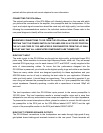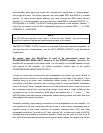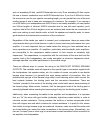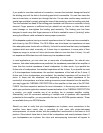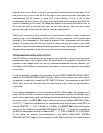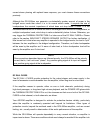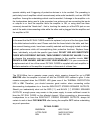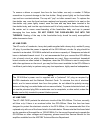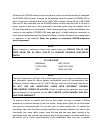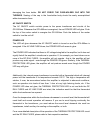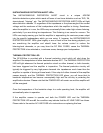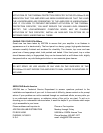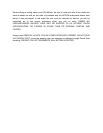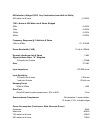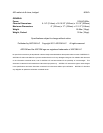
Whenever the POWER switch on the front panel is turned on and the amplifier is energized,
the POWER LED will glow. If turning on the amplifier does not cause the POWER LED to
glow, it may be an indication that the AC LINE FUSE is blown. Unplug the AC LINE CORD
from the AC wall outlet and turn the POWER0 switch off and check the fuse. If the fuse is
blown, replace it with one of the fuses listed in the table below, plug the amplifier into its
AC-wall outlet and turn on the amplifier. If after replacing the fuse, it blows immediately upon
turning on the amplifier (POWER LED does not glow), a failed electronic component or
other internal malfunction must be suspected. Make no further attempts at fuse replacement
or operation of the amplifier. Refer the problem to competent ADCOM-authorized
service personnel.
NOTE
Before checking or replacing a blown fuse, make certain you UNPLUG THE AC LINE
CORD FROM THE AC WALL OUTLET TO PREVENT POSSIBLE ELECTRICAL
SHOCK.
AC LINE FUSES
BUSSMAN ABC-12/250V
LITTELFUSE 3AB314012/250V
SOC CES6-12A/125V
NOTE
The fuses listed above, and their time-current blowing points, have been carefully selected
and thoroughly tested to deliver optimal performance while still accomplishing their
protective functions. Replace the AC LINE FUSE only with one of the fuses listed above.
DO NOT USE ANY SUBSTITUTE FUSES WITH DIFFERENT RATINGS,
TIME-CURRENT CURVES OR VALUES. Failure to observe this precaution may cause
serious damage to the amplifier circuits, MAY CREATE A FIRE HAZARD, AND WILL
VOID YOUR WARRANTY.
To remove a blown or suspect fuse from its fuse holder, use only a number 2 Phillips
screwdriver to prevent damage to the fuse holder. Simply press lightly on the fuse-holder
cap and turn counterclockwise. The cap will "pop" out after several turns. To replace the
fuse-holder cap, once the fuse has been replaced and properly installed in its seat on the
fuse-holder cap, press lightly inward, once the fuse and cap have been inserted in the
fuse-holder body, and turn the cap clockwise until it is firmly seated in the fuse-holder body.
Be certain not to cause cross-threading of the fuse-holder body and cap to prevent



